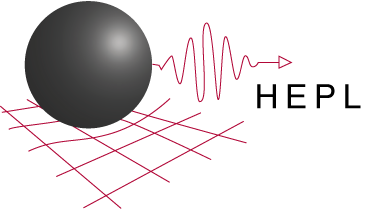News & Events
HEPL-AEROASTRO Seminar
Wednesday May 25, 2011
Nergis Mavalvala
Professor of Physics
Massachusetts Institute of Technology
Quantum Opportunities in Gravitational Wave Detector
Abstract: Interferometric gravitational wave detectors are poised to launch a new era of gravitational wave astronomy and unprecedented tests of general relativity. These detectors also provide opportunities for studying quantum phenomena on unprecedented scales.The sensitivity of a new generation interferometric gravitational wave detectors, currently being constructed, is expected to be almost entirely limited by quantum mechanics.
I will explore the quantum limit and
describe experimental progress toward circumventing it. I will discuss injection of squeezed states to mitigate photon shot noise, and also mirror trapping and cooling experiments to maneuver the quantum limitation that arises from the fluctuating
radiation pressure force that light exerts on the movable mirrors of the interferometer. These experiments will lay the foundations for higher sensitivity future detectors.
Bio: Nergis Mavalvala is a physicist working on gravitational wave science. Her research on interferometric gravitational wave detectors links the world of quantum mechanics, usually apparent only at the atomic scale, with some of the most
powerful, yet elusive, forces in the cosmos. She received a B.A. from Wellesley College in 1990 and a Ph.D. from the Massachusetts Institute of Technology in 1997. She was a postdoctoral fellow and research scientist at the California Institute
of Technology between 1997 and 2002. She joined the Physics faculty at the Massachusetts Institute of Technology in 2002. She is now Professor of Physics at MIT, and a recipient of the 2010 MacArthur fellowship.
Time: 4:00pm – 5:30pm
Location: Physics and Astrophysics Conference Room 102/103
Light refreshments available 4:00pm; Presentation begiins 4:15pm
Open to All


